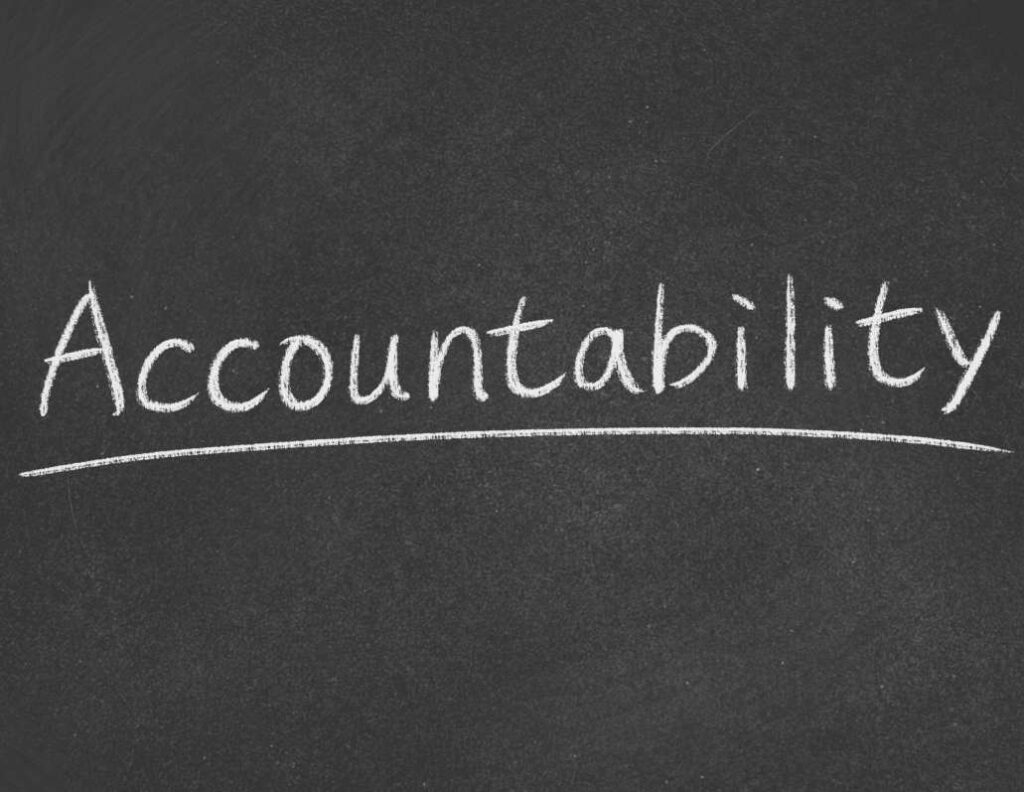Recovery from addiction requires courage, commitment, and a willingness to take responsibility for your actions and choices. In many ways, personal accountability is a cornerstone of lasting recovery.
By drawing on various principles and practical tools early in recovery, people can build a strong foundation for a healthier, more fulfilling life. This blog post explores how personal accountability shapes recovery and offers guidance for those beginning this transformative journey.
Below we will explore the 12 Steps and Cognitive Behavioral Therapy (CBT) tools to help foster personal accountability.
What is Personal Accountability in Recovery?
Personal accountability means taking ownership of your thoughts, behaviors, and decisions — past, present, and future. In the context of addiction recovery, it’s about recognizing the role you’ve played in your struggles, committing to change, and actively working toward a life free from substance use. It’s not about blame or shame; instead, it’s about empowering yourself to make healthier choices and create a brighter future.
How CBT Supports Accountability in Recovery
Cognitive Behavioral Therapy (CBT) complements the 12 Steps by providing practical tools to understand and change the thoughts and behaviors that fuel addiction. CBT focuses on the connection between thoughts, feelings, and actions, helping individuals identify and challenge unhelpful patterns.
Combining the introspective nature of the 12 Steps with other actionable strategies, can create a powerful framework for personal accountability that supports long-term recovery.
Practical Tips for Cultivating Accountability
If you’re new to recovery, building personal accountability may feel overwhelming, but small, consistent steps can make a big difference. Here are some practical ways to get started:
- Practice Honest Self-Reflection: Set aside time each day to reflect on your actions, thoughts, and feelings. Journaling can be a helpful tool to explore what went well and where you can improve. Ask yourself, “What did I do today to support my recovery?”
Lean on Your Support System: Share your goals and challenges with a sponsor, therapist, or trusted friend. Being open about your journey invites accountability and helps you stay connected to others who support your recovery. - Set Clear, Achievable Goals: Break your recovery into manageable steps. For example, commit to attending a certain number of 12-Step meetings each week. Celebrate small victories to stay motivated.
- Own Your Mistakes: Nobody is perfect, especially in early recovery. If you slip or make a mistake, acknowledge it without judgment, learn from it, and recommit to your goals. Step 10’s focus on promptly admitting wrongs can guide you here.
The 12 Steps and Personal Accountability
The 12 Steps provide a structured framework for personal accountability, guiding individuals through self-reflection, amends, and ongoing growth. Here are a few key steps that emphasize accountability and how they can help those early in recovery:
- Step 1: Admitting Powerlessness – “We admitted we were powerless over alcohol and that our lives had become unmanageable.” This step is the first act of accountability: honestly acknowledging the impact of addiction on your life. For someone new to recovery, this can be both humbling and liberating. It’s about facing the truth without denial or excuses, setting the stage for meaningful change.
- Step 4: Taking a Moral Inventory – “Made a searching and fearless moral inventory of ourselves.” This step requires deep self-reflection, asking you to examine your behaviors, choices, and patterns; both those related to addiction and beyond. Early in recovery, this can feel daunting, but it’s a powerful opportunity to identify areas for growth and take responsibility for past actions.
- Step 8 and 9: Making Amends – These steps involve listing those you’ve harmed, being willing, and making direct amends where possible. Accountability here means not only recognizing the pain you may have caused others, but also taking concrete steps to repair relationships and rebuild trust. For those new to recovery, this process can foster hope and connection, showing that change is possible.
- Step 10: Ongoing Self-Reflection – “Continued to take personal inventory and when we were wrong, promptly admitted it.” Recovery is a lifelong journey, and Step 10 emphasizes the importance of daily accountability. By regularly checking in with yourself, you can catch harmful patterns early and stay aligned with your recovery goals.
- Stay Connected to the 12 Steps: Attend meetings, work with a sponsor, and engage with the steps actively. The 12-Step community provides a safe space to practice accountability and learn from others’ experiences.
The 12 Steps encourage a mindset of honesty, humility, action, and change—qualities that are essential for anyone starting their recovery journey. They provide a roadmap for taking responsibility, while offering a supportive community to share the journey.
Why Accountability Matters in Early Recovery
For those new to recovery, personal accountability can feel like a heavy responsibility, but it’s also a source of empowerment. By owning your choices and their consequences, you reclaim control over your life. The 12 Steps and CBT provide complementary tools to help you build this accountability: the 12 Steps offer a spiritual and communal framework for self-honesty and growth, while CBT gives you practical skills to manage thoughts and behaviors.
At Renascent, we’ve seen countless individuals transform their lives by embracing accountability. It’s not about perfection; it’s about progress. Each step you take, whether it’s admitting a struggle, making an amend, or challenging a negative thought, brings you closer to a life of freedom and purpose.
Recovery is a journey of self-discovery, and personal accountability is the compass that keeps you on course. By integrating the wisdom of the 12 Steps with the practical tools you can build a strong foundation for lasting change. If you’re early in your recovery, know that you’re not alone. At Renascent, we’re here to support you every step of the way.

